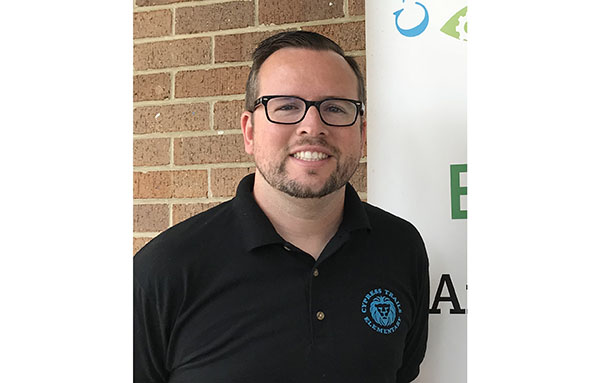Cypress Trails Elementary School Principal Bruce Saulter reported on the status of his school at the Monday, Oct. 4 meeting of the Royal Palm Beach Education Advisory Board.
Now in his third year as principal at Cypress Trails, Saulter also introduced himself and spoke about his background. Originally from Indiana, he attended Hanover College, where he was an athlete.
“When you go to a liberal arts college, you don’t necessarily get a degree as much as you get preparation for life, so that was really important to my upbringing,” he said.
His career in education started at Royal Palm Beach Elementary School. “I was 23 years old and moved down here from Indiana,” he recalled. “That was when I got the opportunity to learn how wonderful the Village of Royal Palm Beach is. I then journeyed over to Seminole Trails Elementary School, where I was the assistant principal for six years.”
Saulter took over at Cypress Trails in 2018, just in time to begin planning for the school’s 30th anniversary. Cypress Trails, which opened in the 1989-90 school year, had the opportunity to celebrate that milestone just before the COVID-19 crisis limited activities.
The school currently has 480 students, which is an increase of 40 students from last year, along with two additional teachers.
“We had a student intern who stayed on with us in an interim capacity, so I was able to hire her in a full-time position, and I was also able to hire a tutor, who was a retired teacher who has been tutoring for us,” Saulter said. “I guess we made her feel so welcome that she wanted to go back into the classroom. Luckily, I was able to fill both of our vacancies with home-grown people.”
He added that students falling behind in their expected levels of achievement are only taught by experienced teachers. “We have veteran teachers who are familiar with the curriculum and are able to collaborate together,” Saulter said. “That is done intentionally. I know some schools can’t control that, but we can, and it’s something that we definitely pay attention to.”
Seventy-six percent of teachers at Cypress Trails have seven or more years of experience, he noted.
Cypress Trails is the only Title I elementary school in the western communities, he said.
“We are barely Title I, 70 percent. We always float around that 70 to 72 percent mark, but especially last year, there was a lot of factors that were in play, but our families fully understand the importance of applying for free or reduced-price lunch, even if you don’t use it,” Saulter said. “We do a marketing campaign to try to be sure that every single family applies so that we can continue to receive that funding.”
The school is 42 percent Hispanic, 29 percent white and 21 percent black.
“In my now fourth year as principal, our Hispanic population has grown,” he said. “The other two demographics remain pretty consistent.”
The school has 12 percent of its students who speak languages other than English, as well as 12 percent with disabilities, Saulter added.
Cypress Trails maintained its A rating in the 2018-19 school year for the fourth consecutive year, the last time the ratings were conducted by the state.
“In the school district, we were one of only two A-rated Title I schools for four consecutive years,” Saulter said. “That’s something that we’re very proud of. This is a village effort. It starts in the early years with local daycares… Title I schools are not traditionally A-rated.”
Cypress Trails has also been given the title School of Excellence. “That category comes with your test scores being in a certain percentile of the state,” he said.
In 2020-21, the school maintained or improved its language and math learning achievements, he said.
The school has implemented an improvement plan that focuses on instruction related specifically to mathematics, increasing achievement and learning gains for the lowest 25 percent of students.
“Math is a challenge across the district,” Saulter said. “Math dropped significantly last year, and one of the reasons why is because math has so many ways that you can fall behind. If you miss one lesson, it just constantly builds… We’re recognizing that we need to focus on monitoring students for their learning lesson by lesson.”








